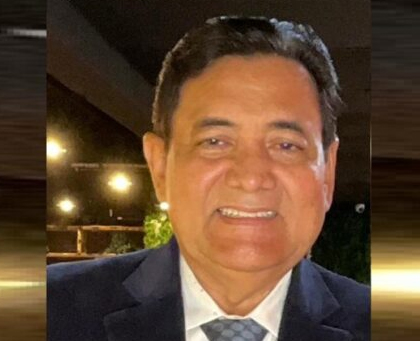The legitimate Supreme Court of Justice of Venezuela

By: José Rangel Barón - 20/01/2025
Guest columnist.Share:
Legitimacy of Origin as a Guarantee of Justice
The Statute of the Transition to Democracy in Venezuela, approved by the National Assembly in 2019, has no legal or constitutional authority to eliminate the Supreme Court of Justice in exile (TSJ). This court, legitimately appointed by the National Assembly in 2015, represents an institution of continuity of the Venezuelan State in the face of a judicial system co-opted by a de facto regime.
Legitimacy of Origin: A Fundamental Principle
The Supreme Court in exile has legitimacy of origin, based on its appointment by a democratic legislative power and its international recognition by more than 65 countries and organizations such as the OAS, the United Nations and the International Criminal Court. This recognition is based on the principles of popular sovereignty and institutional continuity, essential to reestablish the rule of law in Venezuela.
Jean-Jacques Rousseau, in The Social Contract, states that 'sovereignty cannot be represented, because it resides in the general will'. In this context, the TSJ in exile acts as guarantor of that general will, representing the rights and democratic aspirations of the Venezuelan people.
Judicial Autonomy: A Pillar of Democracy
The TSJ in exile is an autonomous and independent body, which exercises its functions without being subject to interference from political power. Montesquieu, in The Spirit of the Laws, maintained that 'political freedom is only found in moderate governments, and consists in not abusing power'. The TSJ in exile embodies this principle, acting as a counterweight to authoritarianism.
Constitutional and Universal Foundations
Any attempt to ignore or eliminate the Supreme Court in exile would violate fundamental principles enshrined in international instruments and the Venezuelan Constitution. Article 333 of the Venezuelan Constitution establishes the duty of all citizens and State bodies to collaborate in restoring its full validity when it is violated.
Furthermore, the Universal Declaration of Human Rights enshrines in its Article 21 that 'the will of the people is the basis of the authority of public power'.
The Right to Resist Oppression
In circumstances of oppression, the right to resist is legitimate. According to John Locke, in his Second Treatise on Civil Government, citizens have the right to resist and organize against governments that violate fundamental rights.
The Supreme Court in exile is an expression of this right, denouncing human rights violations and acting as an instance of justice against an authoritarian regime.
A Call to Defend Democracy
The Supreme Court in exile not only ensures the institutional continuity of the Venezuelan State, but also constitutes a bastion of the democratic and constitutional struggle. Ignoring its legitimacy would be to betray democratic principles and weaken efforts to reestablish the rule of law.
Rousseau said: 'Freedom does not consist in doing what one wants, but in being able to do what one must.' It is the duty of the Venezuelan nation and the international community to support the TSJ in exile as a
tool to protect fundamental rights and popular sovereignty.
Conclusion: Justice and Democracy for Venezuela
The Supreme Court of Justice in exile is a legitimate and necessary institution to confront the authoritarianism that has usurped the institutions of the Venezuelan State. Its work has been crucial to denouncing crimes against humanity and safeguarding the constitutional order in the midst of a serious political and social crisis.
As Montesquieu said: 'An injustice done to one is a threat to all.' Therefore, supporting the TSJ in exile is supporting justice, democracy and the future of Venezuela as a free and sovereign nation.
Our recognition and gratitude to the TSJ in exile.
«The opinions published herein are the sole responsibility of its author».